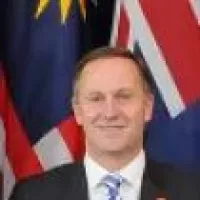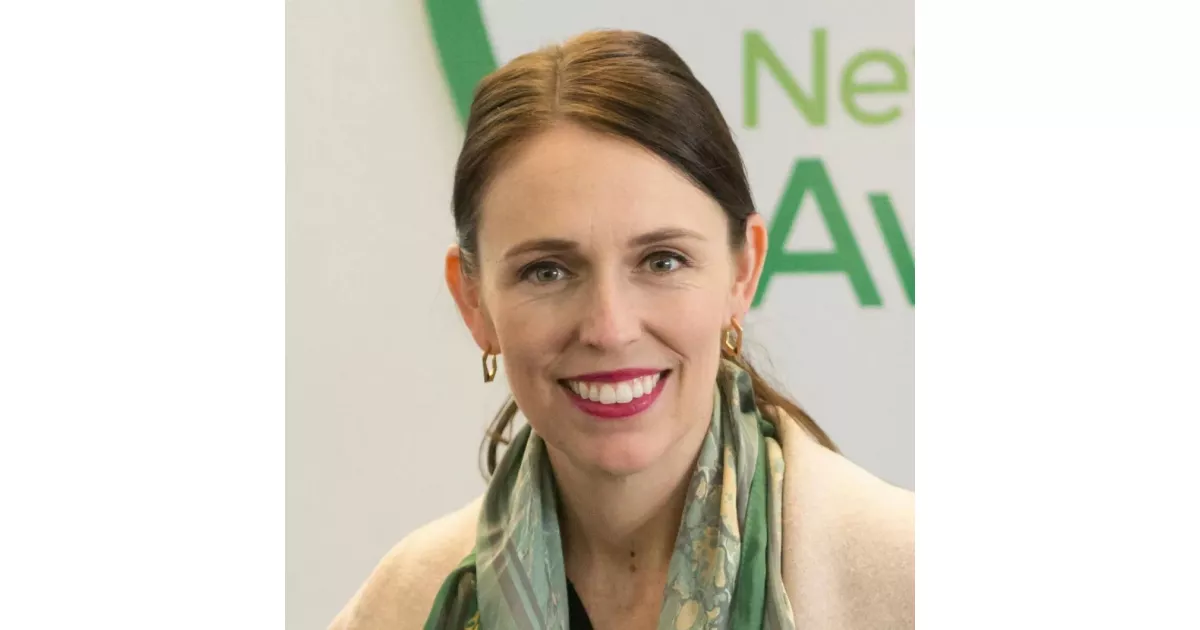A closer look at the defining struggles that shaped Jacinda Ardern's life and career.
Jacinda Ardern served as the 40th Prime Minister of New Zealand and leader of the Labour Party from 2017 to 2023. Before becoming Prime Minister, she was a Member of Parliament, first as a list MP from 2008 to 2017, and then representing the Mount Albert electorate from 2017 to 2023. Her tenure was marked by significant events, including the Christchurch mosque shootings and the COVID-19 pandemic, which shaped her leadership and policy decisions.
2011: Contested the seat of Auckland Central
In 2011, Ardern contested the seat of Auckland Central for Labour in the general election but lost to Nikki Kaye.
September 2017: Farmers protested against taxes in Morrinsville
On 18 September 2017, the farming lobby group Federated Farmers staged a protest against the Labour and Green parties' proposed water and pollution taxes in Ardern's hometown of Morrinsville.
August 2018: Curran Removed from Cabinet
On 24 August 2018, Jacinda Ardern removed Broadcasting Minister Clare Curran from Cabinet after Curran failed to disclose a meeting with a broadcaster, deemed a conflict of interest. Curran remained a minister outside Cabinet, but Ardern later accepted Curran's resignation.
2018: Rumours of investigation into Gayford
In 2018, after growing rumours that Clarke Gayford was under police investigation for criminal offences, both Jacinda Ardern and the Police Commissioner Mike Bush confirmed that Gayford was not, and had not been, under any such investigations.
March 2019: Introduced strict gun laws after Christchurch mosque shootings
In March 2019, following the Christchurch mosque shootings, Ardern reacted by rapidly introducing strict gun laws.
March 2019: Christchurch Mosque Shootings
On 15 March 2019, 51 people were fatally shot and 49 injured in two mosques in Christchurch. Ardern condemned the attacks as acts of terror carried out by extremists.
April 2019: Ardern Pledges No Capital Gains Tax
In April 2019, Jacinda Ardern pledged that her government would not implement a capital gains tax under her leadership.
2019: Criticism over Handling of Sexual Assault Allegation
In 2019, Jacinda Ardern faced criticism for her handling of an allegation of sexual assault against a Labour Party staffer, with media questioning her account of the information she received.
February 2020: Ardern Criticizes Australia's Deportation Policy
In late February 2020, Jacinda Ardern met with Australian Prime Minister Scott Morrison in Sydney and criticized Australia's policy of deporting New Zealanders as "corrosive."
March 2020: COVID-19 Border Restrictions and Lockdown Announced
In March 2020, Jacinda Ardern announced strict border restrictions due to the COVID-19 pandemic, requiring anyone entering the country to isolate themselves for 14 days. Later in March, the borders were closed to non-citizens and a nationwide lockdown was announced to begin on 26 March.
April 2020: Lawsuit Filed Against Ardern and Government Officials
In mid-April 2020, a lawsuit was filed, but ultimately dismissed, against Ardern and government officials claiming that the COVID-19 lockdown infringed on freedoms and was made for "political gain".
May 2020: Trans-Tasman COVID-Safe Travel Zone Collaboration Agreed
On 5 May 2020, Jacinda Ardern, her Australian counterpart Scott Morrison, and several Australian state and territorial leaders agreed to collaborate on developing a trans-Tasman COVID-safe travel zone.
September 2020: Plans to Make Tertiary Education Tuition Free Abandoned
In September 2020, Jacinda Ardern announced that her government had abandoned plans to make tertiary education tuition free.
2020: Ardern's government term
From 2020 to 2023, Ardern's government faced scrutiny over its performance and the delivery of promises, influencing perceptions of her leadership.
January 2021: Continuation of border closures
On 26 January 2021, Ardern announced that New Zealand's borders would remain closed to most non-citizens and non-residents until New Zealand citizens have been "vaccinated and protected".
August 2021: Nationwide lockdown due to Delta variant
In August 2021, following the outbreak of the COVID-19 Delta variant, Jacinda Ardern prompted the government to enact another nationwide lockdown.
October 2021: End of zero-Covid approach
In early October 2021, after one and a half years, New Zealand ended its "Covid zero" strategy, becoming the last country in the world to do so, apart from China.
2021: Delta variant spreads; nationwide lockdown and accelerated vaccination
In 2021, the Delta variant of COVID-19 spread in New Zealand, leading to a nationwide lockdown in August. Cases continued to rise, prompting the government to abandon containment and accelerate vaccination efforts. Ardern expressed concerns that New Zealand's sense of togetherness was starting to fracture as anti-vaccine protests increased.
2021: Abuse and Threats towards Ardern
In 2021-2022, Ardern faced abuse from anti-vaxxers, anti-government protestors, and right-wing populist protestors. Conspiracy theorist Richard Sivell was convicted of threatening to kill Ardern.
January 2022: Ardern and Gayford wedding postponed
In January 2022, Jacinda Ardern and Clarke Gayford's wedding was postponed due to COVID-19 Deltacron hybrid variant.
January 2022: Self-isolation after COVID-19 exposure
On 29 January 2022, Ardern, Governor-General Cindy Kiro, and chief press secretary Andrew Campbell self-isolated after being in close contact with a COVID-19 case on an Air New Zealand flight on 22 January.
April 2022: Banned from entering Russia
In April 2022, Ardern was banned from entering Russia along with 129 other parliamentarians and senior government officials after the New Zealand Parliament unanimously imposed sanctions on Russia in response to its invasion of Ukraine.
April 2022: New Zealand High Court ruled MIQ violated human rights
In April 2022, the New Zealand High Court ruled that aspects of MIQ violated international human rights, finding the policies arbitrarily restricted citizens' right to return home under the International Covenant on Civil and Political Rights.
May 2022: Controversial remark on The Late Show with Stephen Colbert
During a May 2022 appearance on The Late Show with Stephen Colbert, Ardern stated that during the two and a half years New Zealand had closed its borders, "New Zealanders could come and go and use quarantine," a remark widely criticized as tone-deaf and dismissive of the hardships many thousands endured.
May 2022: Ardern tests positive for COVID-19
On 14 May 2022, Jacinda Ardern tested positive for COVID-19. Her partner, Clarke Gayford, had tested positive several days earlier on 8 May.
June 2022: Ardern visits Australian Prime Minister Anthony Albanese
In June 2022, Jacinda Ardern met with Australian Prime Minister Anthony Albanese to discuss issues such as Australia's Section 501 deportation policy, Chinese influence in the Pacific, and climate change. Albanese responded to Ardern's concerns by stating he would explore addressing New Zealand's concerns about the deportation policies' impact on New Zealanders.
June 2022: Ardern Attends NATO Summit
In late June 2022, Ardern attended the NATO Leader Summit. She emphasized New Zealand's commitment to peace and human rights, criticised China for challenging international norms in the South Pacific, and alleged that Russia was conducting a disinformation campaign targeting New Zealand due to its support for Ukraine.
November 2022: Ardern Attends East Asia Summit in Cambodia
In mid-November 2022, Ardern attended the East Asia Summit in Cambodia where she condemned the Myanmar military regime's execution of political prisoners and called for consensus in response to the Russian invasion of Ukraine. She also met with US President Biden to discuss A2 Milk's efforts to supply infant formula to the United States to address the infant formula milk shortage.
2022: Rising Housing Costs Criticized
As of 2022, critics say rising housing costs continue to negatively affect families, necessitating systemic changes to ensure lasting improvements.
2022: Decline in domestic popularity and approval rating
In 2022, Jacinda Ardern and her policies experienced a significant drop in domestic popularity. Polling on whether the country was heading in the right direction decreased from 70% in early 2021 to 30% by the end of 2022. Labour party polling was similar to when she took office in 2017, and her approval rating fell to 29%.
January 2023: Ardern's Domestic Popularity Reaches All-Time Lows
By 19 January 2023, Ardern's domestic popularity had reached all-time lows in several opinion polls. However, she stated that this would not affect the Labour Party's chances of winning the next election.
January 2023: Ardern Announces Resignation
On 19 January 2023, Jacinda Ardern announced she would resign as Labour leader and prime minister by 7 February and leave Parliament by the 2023 general election. She cited a desire to spend more time with her family and an inability to commit to another four years.
2023: Ardern's popularity declines
By early 2023, Jacinda Ardern's popularity in New Zealand had declined significantly, with polls showing her approval rating at 29%. This decline reflected public frustration over unfulfilled promises on issues like housing, child poverty, and social inequality.
2023: Resignation and Academic Appointments
Following her resignation in 2023 and subsequent academic appointments in the United States, some New Zealanders expressed concern over what they viewed as a withdrawal from domestic political accountability.
2023: Reactions to Ardern's Resignation
In 2023, Ardern's resignation prompted mixed reactions from across the New Zealand political establishment, with expressions of gratitude and disagreement from various party leaders, and criticisms over unfulfilled promises during the 2020-2023 parliamentary term.
2025: Continued belief in lives saved by Covid-19 actions
In 2025, Ardern continued to believe that her actions during the COVID-19 pandemic had saved approximately 24,000 lives, though she acknowledged the period as "really hard".
Mentioned in this timeline

Bill Gates an American businessman and philanthropist revolutionized personal computing...

Donald John Trump is an American politician media personality and...
Ukraine is a large country in Eastern Europe second in...

Elizabeth II reigned as Queen of the United Kingdom and...

Joe Biden a member of the Democratic Party served as...

The Trans-Pacific Partnership TPP was a proposed trade agreement among...
Trending
Levi's Stadium located in Santa Clara California is a multi-purpose stadium that has been the home of the San Francisco...

Jason Calvin Garrett is a former American football player and coach who spent his career in the NFL He initially...

10 months ago Andrew Luck Spotted Playing QB at Stanford Practice Amidst GM Role

2 months ago National Guard Shooting: Suspect's Isolation, Warnings, and Court Appearance
9 months ago Estonia Strengthens Defense With HIMARS, Honors Veterans, and Prepares for Live Fire Training.

3 months ago Cynthia Erivo and Lena Waithe's Relationship Timeline and Affair Rumors Addressed.
Popular

Kid Rock born Robert James Ritchie is an American musician...
The Winter Olympic Games a major international multi-sport event held...

Melania Trump a Slovenian-American former model has served as First...

XXXTentacion born Jahseh Dwayne Ricardo Onfroy was a controversial yet...

Thomas Douglas Homan is an American law enforcement officer who...

Barack Obama the th U S President - was the...
